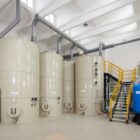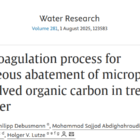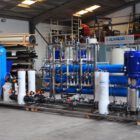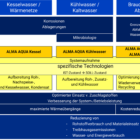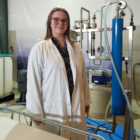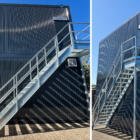Total hardness is a decisive parameter in water chemistry that describes the sum of the concentrations of calcium (Ca²⁺) and magnesium ions (Mg²⁺) in water. These two ions are responsible for the "hardness" of water and significantly influence its properties, particularly in industrial processes such as water treatment and wastewater treatment. The total hardness is given in degrees of German hardness (°dH) or in millimoles per liter (mmol/L).
Table of contents
Technical background
The total hardness is made up of two main components:
- Carbonate hardness (also temporary hardness): The proportion of hardness formed by carbonates and hydrogen carbonates (primarily calcium and magnesium carbonate). This proportion is "temporary" because it precipitates when heated and leads to scale.
- Non-carbonate hardness (also permanent hardness): The proportion of hardness caused by sulphates, chlorides and nitrates of calcium and magnesium in water. These compounds remain dissolved in the water even when heated.
The total hardness is usually expressed as the sum of both components.
Importance of total hardness in practice
In industrial water treatment, total hardness has a significant impact on the operation of steam boilers, cooling water systems and membrane systems. membrane systems such as reverse osmosis and ultrafiltration systems. High total hardness leads to the formation of deposits known as scaling, which can significantly reduce the efficiency of systems.
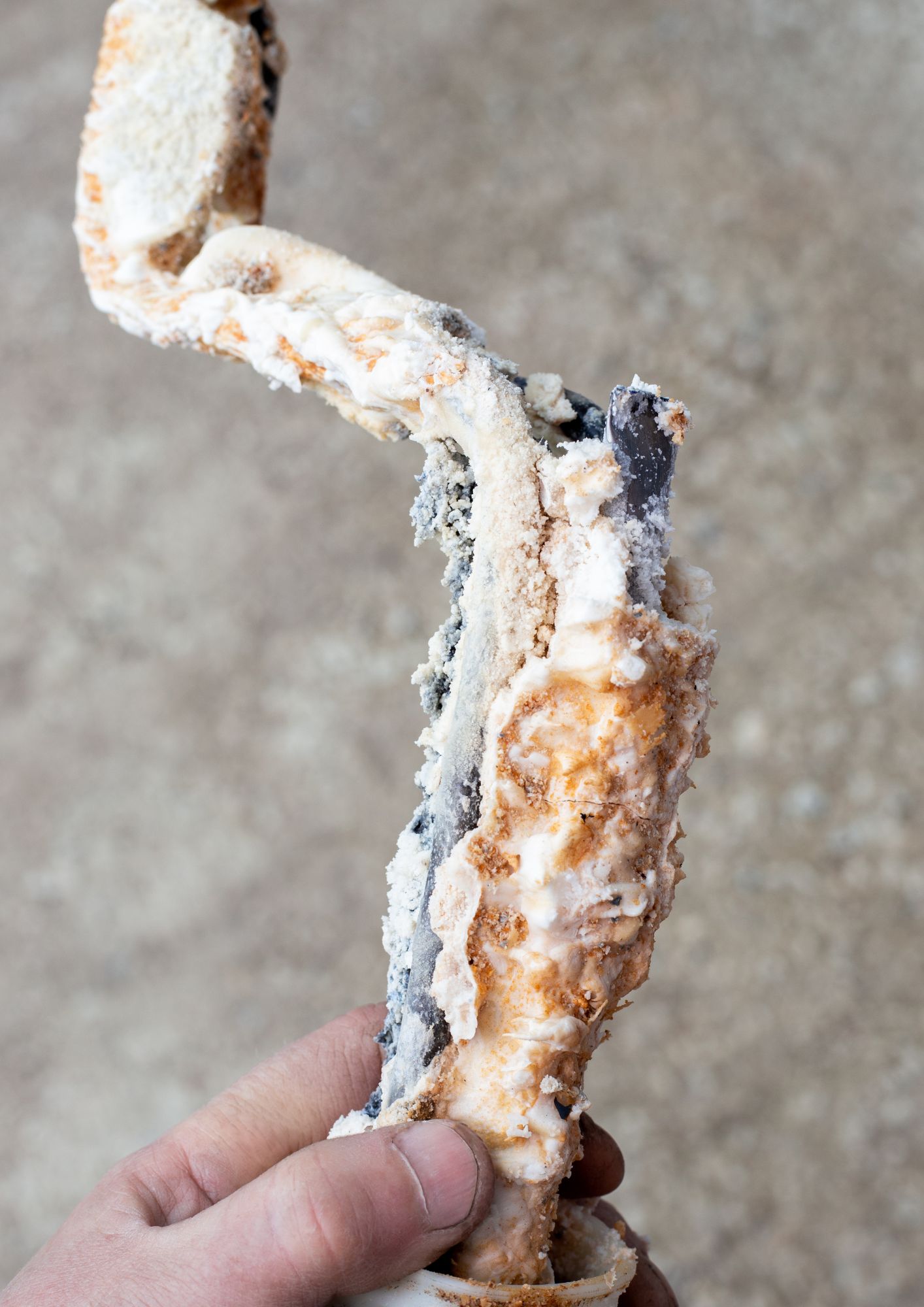
Photo: Extreme case of hardness precipitation on a heating rod
Effects on various industrial processes:
Steam boiler systems: In boiler systems, the overall hardness can lead to the formation of solid deposits on the heating surfaces, which hinders heat transfer. This increases energy consumption and the risk of boiler damage. To avoid this effect, the water is treated by softening before it enters the boiler.
Cooling circuits: In cooling systems, hard water can lead to the build-up of limescale on the heat exchangers, which reduces the efficiency of the heat transfer. Softening systems or antiscalant antiscalant chemicals are also used to prevent the formation of such deposits.
Membrane systems: In reverse osmosis or ultrafiltration systems the ions contained in the total hardness tend to deposit on the membrane surface, which leads to a reduction in throughput and increased cleaning frequency. Antiscalant products such as those in the ALMA AQUA series are used to minimize this problem.
Measures to control the total hardness
To reduce the total hardness, the process of softening by means of ion exchange is often used. In this process, the calcium and magnesium ions are exchanged for sodium ions, which do not cause deposits. Softening systems such as our ALMA ION-systems work on this basis and ensure a continuous supply of softened water, which is required for sensitive industrial processes.
In addition, the use of antiscalant chemicals in membrane systems can help to prevent scaling. These chemicals bind the hardening agents and prevent them from settling on the membranes.
Our solutions: ALMA AQUA and ALMA ION
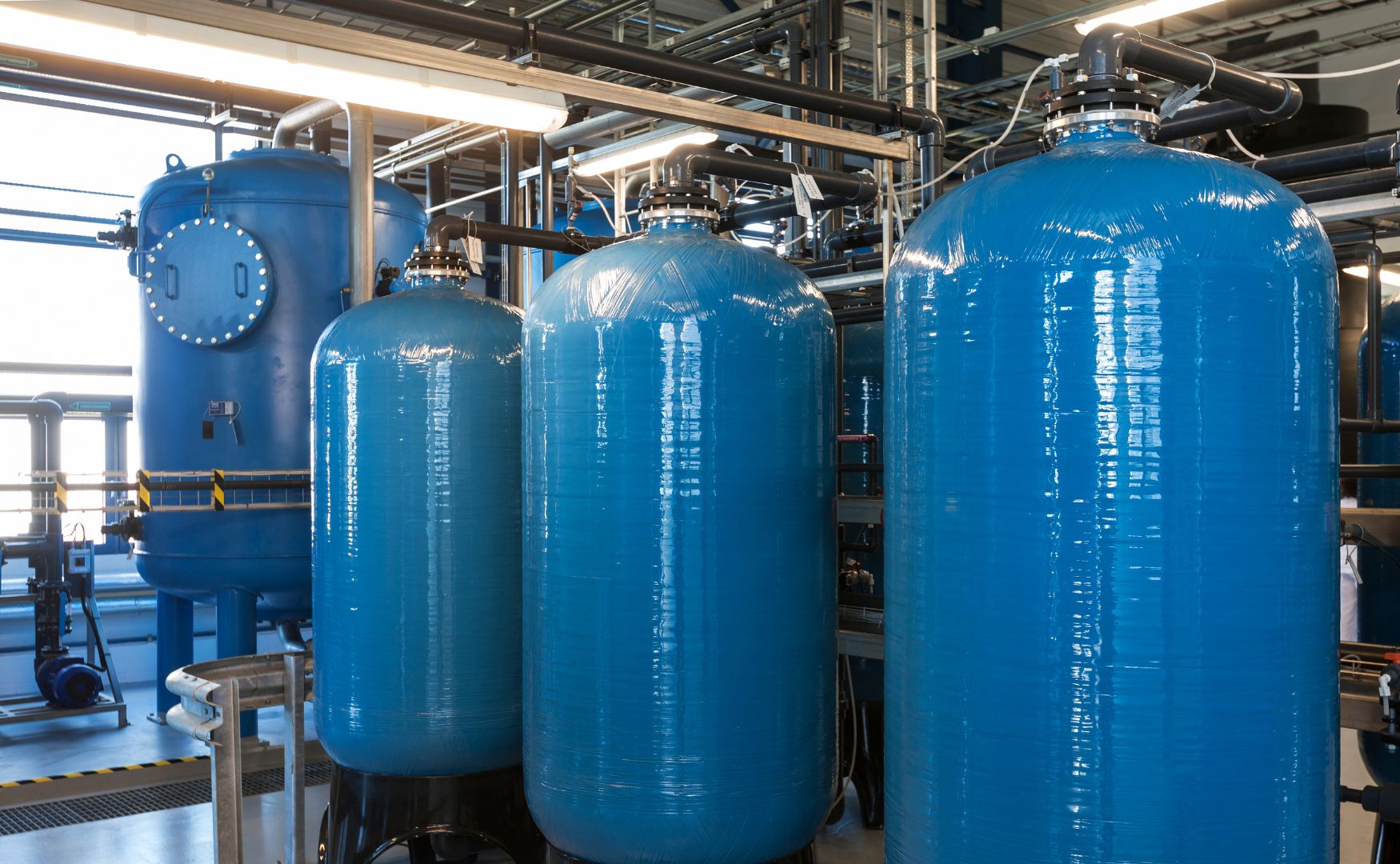
Photo: ALMA ION water softener for industrial applications
ALMAWATECH offers the ALMA IONseries of high-performance water softeners that have been developed for reliable operation in industrial water treatment systems. These systems effectively remove hardness formers and protect your systems from harmful deposits.
Our ALMA AQUA-products contain specialized antiscalants that are used in membrane systems to prevent the formation of limescale deposits. These chemicals make a significant contribution to maintaining the efficiency of reverse osmosis and ultrafiltration systems.
Conclusion
Total hardness is an essential parameter in water treatment that must be monitored and controlled, especially in industrial processes. High total hardness leads to deposits that reduce the efficiency of systems and shorten their service life. These problems can be avoided with the right water softening processes and suitable chemicals. ALMAWATECH solutions offer comprehensive approaches to reduce total hardness and protect your valuable equipment.


